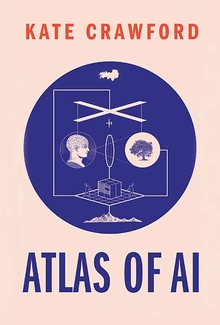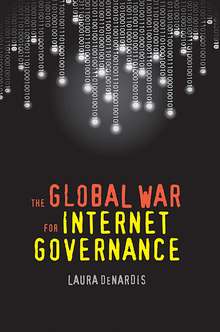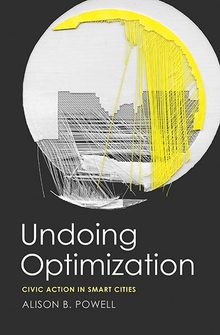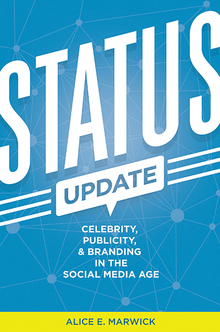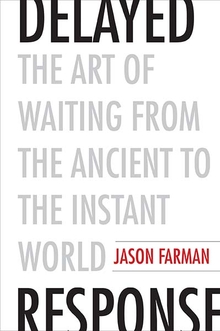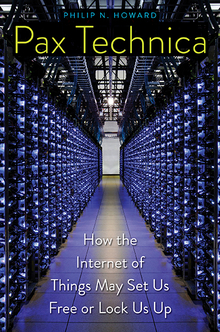Atlas of AI
WARNING
You are viewing an older version of the Yalebooks website. Please visit out new website with more updated information and a better user experience: https://www.yalebooks.com
Power, Politics, and the Planetary Costs of Artificial Intelligence
Kate Crawford
The hidden costs of artificial intelligence—from natural resources and labor to privacy, equality, and freedom
"This study argues that [artificial intelligence] is neither artificial nor particularly intelligent. . . . A fascinating history of the data on which machine-learning systems are trained."—New Yorker
"A valuable corrective to much of the hype surrounding AI and a useful instruction manual for the future."—John Thornhill, Financial Times
"It’s a masterpiece, and I haven’t been able to stop thinking about it."—Karen Hao, senior editor, MIT Tech Review
What happens when artificial intelligence saturates political life and depletes the planet? How is AI shaping our understanding of ourselves and our societies? Drawing on more than a decade of research, award‑winning scholar Kate Crawford reveals how AI is a technology of extraction: from the minerals drawn from the earth, to the labor pulled from low-wage information workers, to the data taken from every action and expression. This book reveals how this planetary network is fueling a shift toward undemocratic governance and increased inequity. Rather than taking a narrow focus on code and algorithms, Crawford offers us a material and political perspective on what it takes to make AI and how it centralizes power. This is an urgent account of what is at stake as technology companies use artificial intelligence to reshape the world.
"This study argues that [artificial intelligence] is neither artificial nor particularly intelligent. . . . A fascinating history of the data on which machine-learning systems are trained."—New Yorker
"A valuable corrective to much of the hype surrounding AI and a useful instruction manual for the future."—John Thornhill, Financial Times
"It’s a masterpiece, and I haven’t been able to stop thinking about it."—Karen Hao, senior editor, MIT Tech Review
What happens when artificial intelligence saturates political life and depletes the planet? How is AI shaping our understanding of ourselves and our societies? Drawing on more than a decade of research, award‑winning scholar Kate Crawford reveals how AI is a technology of extraction: from the minerals drawn from the earth, to the labor pulled from low-wage information workers, to the data taken from every action and expression. This book reveals how this planetary network is fueling a shift toward undemocratic governance and increased inequity. Rather than taking a narrow focus on code and algorithms, Crawford offers us a material and political perspective on what it takes to make AI and how it centralizes power. This is an urgent account of what is at stake as technology companies use artificial intelligence to reshape the world.
Kate Crawford is a leading scholar of the social implications of AI. She is a Research Professor at USC Annenberg, a senior principal researcher at Microsoft Research, and the inaugural chair of AI and Justice at the École Normale Supérieure.
"This study argues that [artificial intelligence] is neither artificial nor particularly intelligent. . . . A fascinating history of the data on which machine-learning systems are trained."—New Yorker
"Crawford argues passionately that while AI is presented as disembodied, objective and inevitable, it is material, biased and subject to our own outlooks and ideologies."—David A. Shaywitz, Wall Street Journal
”As Kate Crawford’s trenchant Atlas of AI demonstrates again and again, artificial intelligence does not come to us as a deus ex machina but, rather, through a number of dehumanizing extractive practices, of which most of us are unaware.“—Sue Halpern, New York Review of Books
“One of the world’s most thoughtful researchers on the impact of AI delivers a sobering, but essential, read about how AI is accelerating undemocratic governance and increased inequality.”—John Thornhill, Financial Times, Best Books of 2021
"Exposes the dark side of AI's success. . . . Meticulously researched and superbly written.”—Virginia Dignum, Nature
"A sweeping view of artificial intelligence that frames the technology as a collection of empires, decisions, and actions that are together fast eliminating possibilities of sustainable future on a global scale. . . . A timely and urgent contribution."—Michael Spezio, Science
“Reveals the hidden costs of artificial intelligence, from the consumption of natural resources to the more subtle costs to our privacy, equality and freedom”—Simon Ings, New Scientist ‘Best Books of the Year’
“A compelling new book”— Stephanie Wood, The Sydney Morning Herald
“Atlas of AI is a seminal work that brings AI within our circle of care...Crawford’s book is a great contribution to the field, as efforts are made at various levels, national and international, in companies and educational institutions, to mitigate the harms of this technology. Crawford underlines that this can only happen if we 'challenge the structures of power that AI currently reinforces and create the foundations for a different society.”—Anais Resseguier, AI and Ethics
“Crawford . . . takes AI from the world of Star Trek and makes it thick, human, and visceral.”—John Slattery, Commonweal
"It’s a masterpiece, and I haven’t been able to stop thinking about it."—Karen Hao, senior editor, MIT Tech Review
“In this eloquent and revelatory survey, Crawford limns the dire stakes of unbridled technological expansion. Methodologically original and keenly intelligent Atlas of AI is an indispensable map of the present that boldly calls readers to chart a more just and sustainable future.”—Alondra Nelson, President of the Social Science Research Council
“Eloquent, clear and profound—this volume is a classic for our times. It draws our attention away from the bright shiny objects of the new colonialism through elucidating the social, material and political dimensions of Artificial Intelligence.”—Geoffrey C. Bowker, University of California, Irvine
“A must read. Moving from lithium mines to data extraction, from labor exploitation to government surveillance, Atlas of AI eloquently reveals how intelligence is 'made.' It displaces anemic calls for 'ethics' with probing investigations into the environmental degradation, capital accumulation, and labor conditions that AI makes possible.”—Wendy Hui Kyong Chun, SFU's Canada 150 Chair in New Media
"By brilliantly tracing the history, mythology, ethics and politics of artificial intelligence, Atlas of AI reminds us that the stories we tell about AI are just as vital as the mathematical models that comprise these systems."—Ruha Benjamin,
author of Race After Technology: Abolitionist Tools for the New Jim Code
author of Race After Technology: Abolitionist Tools for the New Jim Code
“Artificial Intelligence seems to haunt the world like a ghost in our machines. But as Kate Crawford shows in her vivid, unnerving book, this amalgam of algorithms, data, hardware is anything but immaterial. Atlas of AI is an outstanding contribution: the ghost of AI made visible.”—Peter Galison, author of Einstein's Clocks
“An insightful excursion into the processes, implications and ethics of data creation and manipulation in the 21st century. Ranging across terrains as diverse as mineral mines, server farms, distribution warehouses, and AI startups, Crawford shows vividly how our systems have grown to be 'dangerous when they fail and harmful when they work.'”—Joseph Turow, author of The Voice Catchers
"Showing Artificial Intelligence as a technological achievement and cultural promise that spans politics, labor, land, and data, Crawford draws a unique and actionable map for seeing and challenging AI’s power."—Mike Ananny, University of Southern California
"Kate Crawford looks at Artificial Intelligence with a humanist’s eye and an artist’s sense of what really matters. If you think AI is all about big data and machine learning, this marvelous book will remind you: it’s about the natural world, and politics, and history, and sometimes, even beauty too."—Fred Turner, author of The Democratic Surround: Multimedia and American Liberalism from World War II to the Psychedelic Sixties
"From the extraction of labor, latex, and lithium to the politics of proxies and Palantir, Atlas of AI is a rigorous interrogation of the power relations that reproduce AI, and a necessary mapping of its very limits. This is an essential book."—Simone Browne, author of Dark Matters: On the Surveillance of Blackness
"Whether you’re a devoted researcher, an AI practitioner, or a general reader concerned about the growing power of data, this is an eye-opening tour of the planetary resources, laboring bodies, and relations of power that travel under the sign of AI, lending the empire of data its unsustainable life."—Lucy Suchman, author of Human-Machine Reconfigurations
“Brilliantly drawn case studies of data acquisition and processing methods . . . this eloquently written book will keep readers engaged long after finishing the last page.” —-J. Brzezinski, CHOICE
CHOICE Outstanding Academic Titles 2021
Winner of the 2022 Best Information Science Book of the Year Award, sponsored by ASIS&T
ISBN: 9780300209570
Publication Date: April 6, 2021
Publication Date: April 6, 2021
336 pages, 5 1/2 x 8 1/2
31 b/w illus.
31 b/w illus.

